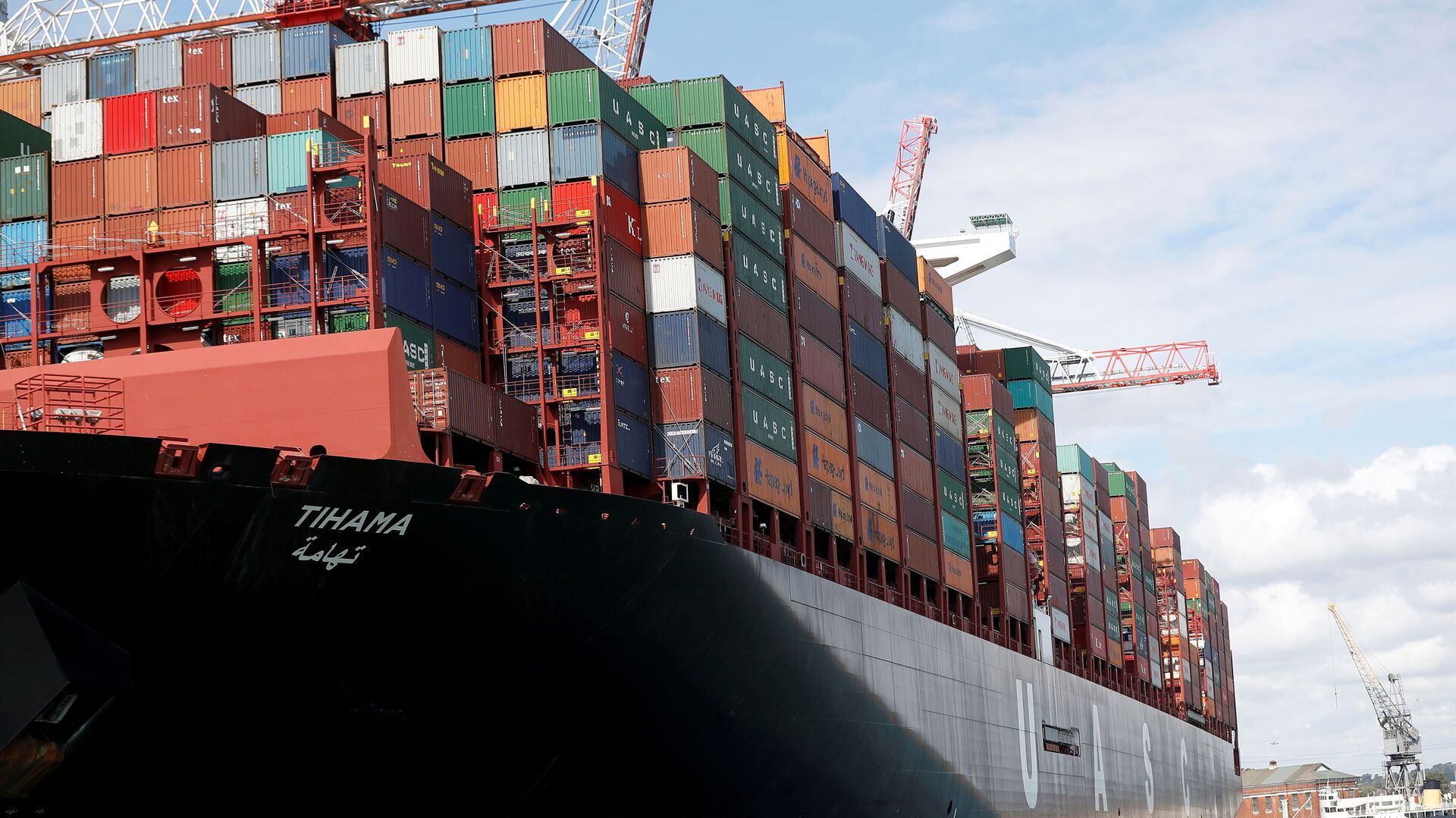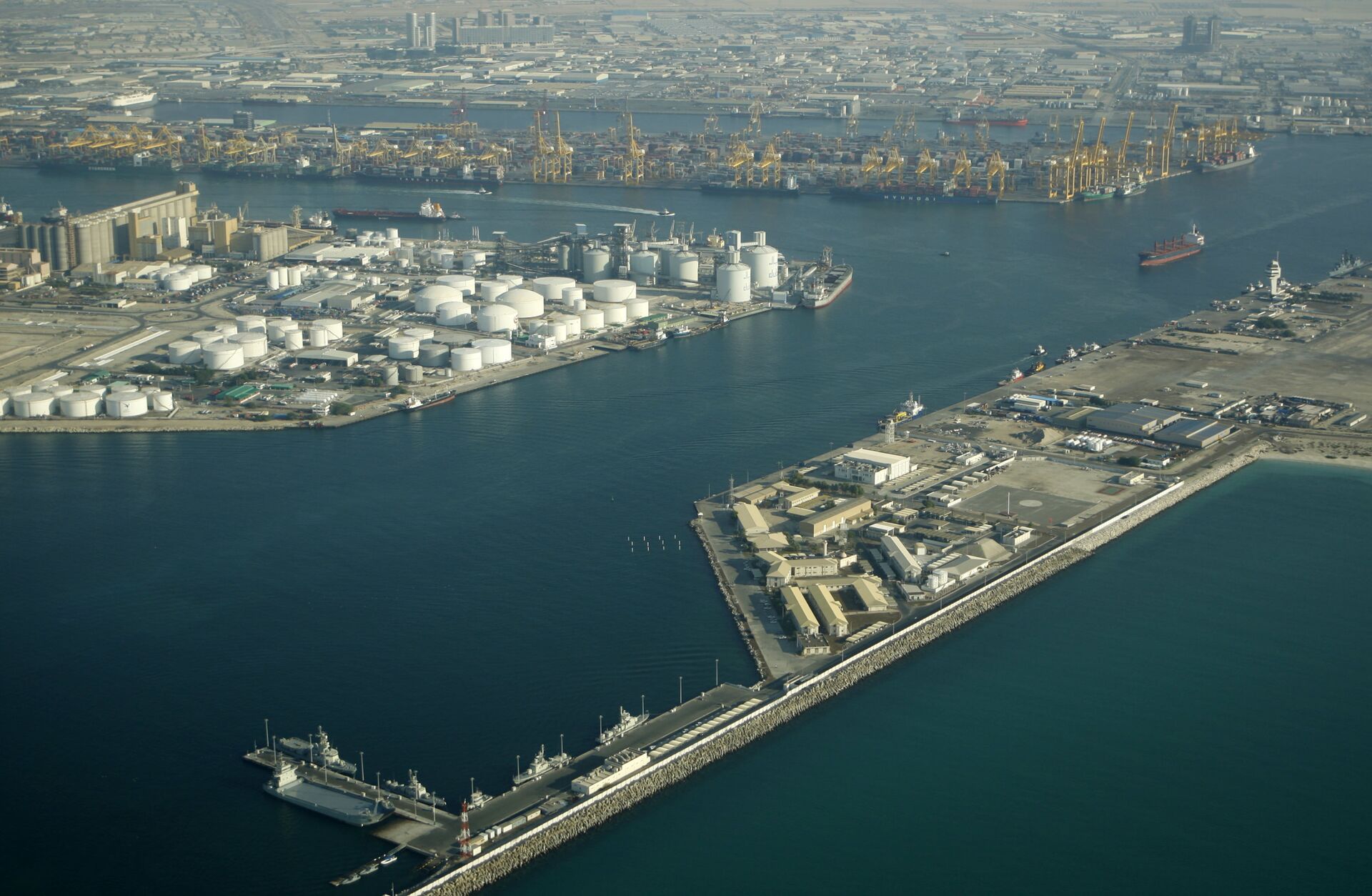UK Government is Throwing Away 'Golden Opportunity' With Freeports, Says Expert
11:14 GMT 30.07.2021 (Updated: 15:15 GMT 28.05.2023)

© REUTERS / PETER NICHOLLS
Subscribe
In November of last year, the government finally began the bidding process for the first freeports and claimed they would "turbocharge Britain's post-Brexit growth". But nine months later the process is bogged down with the enabling legislation still going through parliament.
In March, Chancellor Rishi Sunak announced eight locations in England had been granted freeport status but critics say the government's policy has not been properly formulated and will not contribute significant revenues to help pay off the huge national debt caused by the coronavirus pandemic.
Liverpool, Felixstowe, Humber, Plymouth, Solent, Teesside, Thames, and East Midlands Airport were awarded freeport status amid hopes they would be up and running by the end of 2021 pending "completion of their business case assessments".
Prime Minister @BorisJohnson and Chancellor of the Exchequer @RishiSunak were in Teesside this morning where a new Freeport will create thousands of jobs. pic.twitter.com/TVxlUSfbwD
— UK Prime Minister (@10DowningStreet) March 4, 2021
But Tony Restall, who helped create Dubai's first free trade zone in the port of Jebel Ali in the 1980s, told Sputnik the government was floundering and had no real idea of how freeports work to generate money for the Treasury.
He said the "tail was wagging the dog" and instead of asking the bidders to explain their business case, the government should have set out the ground rules for freeports and then asked for bids.
But Mr Restall said: "Freeports should generate revenue for the country. In Dubai they generate $500 billion a year, which dwarfs the amount they get from oil exports".
Mr Restall added: "The UK needs money. The national debt is £2.2 trillion and the government spent £350 billion on COVID. My experience goes back 40 years and we always said 'where is the money?'. The UK is going in totally the wrong direction. They have only done desktop research and they don't say how they are going to generate revenue".
Mr Restall, who is the president and CEO of DSI Group, said the government should have had the freeports "oven-ready" for when the transition period ended on 31 December 2020.
The Conservative Party manifesto in the December 2019 general election promised to create up to ten freeports around the UK which would be "national hubs for global trade and investment" and would "promote regeneration and job creation as part of the government's policy to level up communities".
We are well connected to the rest of the UK & a gateway to the world!
— Invest Stockton-on-Tees (@InvestSOT) July 28, 2021
🚘 Strategic road networks ☑️
🚢 UK’s largest freeport ☑️
🚆 Key rail routes ☑️
✈️ @TeesAirport ☑️
More on connectivity ⬇️https://t.co/jksNBWrLY5 pic.twitter.com/Jd4NJh4MnK
Chancellor Sunak noted: "I see old industrial sites being used to capture and store carbon, vaccines being manufactured, offshore wind turbines creating clean energy for the rest of the country, all located within a freeport".
Mr Restall said businesses needed to know exactly what the ground rules were before they agreed to invest, noting they could not know that because the freeports legislation was still going through the British Parliament.
In February, 18 freeport bids were received but four, including one for Heathrow Airport, were immediately rejected while the others were graded on five criteria, one of which was "trade and investment", in other words how much money they would bring in.
The East Midlands freeport was granted despite it being assessed as "low" in the trade and investment category, and three other successful bids - Plymouth, Solent, and Teesside - were all assessed as being "medium" in that category.
Mr Restall said another baffling part of the government's policy was that freeports were being handled by the Ministry of Housing.
"It's very strange. What have they got to do with housing? Nothing. If you want to bury something you put it with an irrelevant ministry", said Mr Restall.
The Treasury and the Department for International Trade refused to send anyone to answer questions before parliament's International Trade Committee about the government's freeports policy and process.

The free port of Jebel Ali in Dubai
© AP Photo / Kamran Jebreili
In its report in April, the committee said: "We find this episode of evident confusion and apparent unwillingness to appear before us extremely regrettable. Aside from hindering the important role parliament plays in scrutinising the government, this unwillingness caused substantial delay to our evidence-taking, and to the preparation of this report".
The committee further noted that: "The Department for International Trade's role in supporting businesses to grow internationally, means that it should have a central role in the development and implementation of the freeports policy, yet this appears to have diminished over time".
The report added: "The freeports policy documents published to date do not clearly set out the government's proposals for the long-term oversight and governance of freeports. We call on the government to publish its proposals in this area so that there is transparency about the oversight of freeports".
Mr Restall stated that the whole process smacked of incompetency, noting: "The sad thing is that a golden opportunity is flying out of the window because of confusion and lack of clarity".
He said Heathrow and Gatwick airports should have been granted freeport status in light of how catastrophic the pandemic has been for the airline industry.

